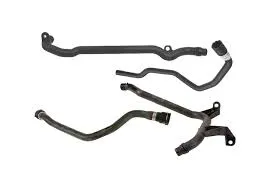Understanding the Importance of Motorcycle Brake Lines for Safety and Performance
Nov . 10, 2024 18:03 Back to list
Understanding the Importance of Motorcycle Brake Lines for Safety and Performance
Understanding Motorbike Brake Lines An Essential Component for Safety and Performance
When it comes to the safety and performance of a motorbike, one of the most critical components to consider is the brake system. Within this system, the brake line plays a pivotal role, acting as the conduit that transfers force from the brake lever to the brake caliper. Understanding the function, types, and maintenance of motorbike brake lines is essential for riders who prioritize safety on the road.
The Function of Brake Lines
Brake lines are responsible for carrying hydraulic fluid from the brake master cylinder to the brake calipers. When a rider pulls the brake lever, a pressure is created within the master cylinder, forcing the hydraulic fluid through the lines to the calipers. This process results in the brake pads being pressed against the brake discs, creating friction that slows down or stops the motorcycle. The efficiency of this system is crucial; any inconsistency or failure in the brake lines can lead to severe safety hazards.
Types of Brake Lines
Motorbike brake lines can be broadly categorized into two types rubber and braided stainless steel. Each type has its advantages and disadvantages.
1. Rubber Brake Lines Traditionally, most motorbikes are equipped with rubber brake lines. These lines are flexible, lightweight, and relatively inexpensive. However, rubber lines can degrade over time due to exposure to heat and contaminants in the brake fluid. They may expand under pressure, leading to a spongy brake feel, which can compromise the rider's ability to stop efficiently.
2. Braided Stainless Steel Brake Lines In recent years, many riders have opted for braided stainless steel brake lines. These lines consist of an inner rubber tube surrounded by a mesh of stainless steel braiding. The primary benefit of this design is that it minimizes expansion under pressure, providing a firmer and more responsive brake feel. Additionally, braided lines are more durable and resistant to environmental factors. Nevertheless, they are typically more expensive and may require more intricate installation.
motorbike brake line

Maintenance of Brake Lines
Proper maintenance of brake lines is essential for ensuring the safety and performance of any motorbike. Riders should regularly inspect their brake lines for signs of wear, such as cracks, leaks, or bulges, particularly in rubber lines. If any damage is detected, it’s crucial to replace the lines immediately to avoid potential brake failure.
Another critical aspect of maintenance is the regular replacement of brake fluid. Brake fluid can absorb moisture over time, which decreases effectiveness and can lead to corrosion within the braking system. It is recommended to change the brake fluid according to the manufacturer’s guidelines or at least once every two years.
Understanding the Importance of Quality
When it comes to brake lines, quality should never be compromised. Investing in high-quality components can significantly enhance the performance and safety of your motorcycle. While it may be tempting to go for cheaper alternatives, inferior brake lines can lead to failure, resulting in accidents and potential injuries.
Final Thoughts
In conclusion, the brake line is an integral part of a motorbike’s braking system, directly impacting safety and performance. Understanding the differences between rubber and braided stainless steel brake lines, coupled with regular maintenance, can ensure that your braking system operates effectively. Remember, a well-maintained braking system is not just a matter of performance; it is a crucial aspect of rider safety. Staying informed and proactive about your motorbike’s brake lines can help ensure smooth rides and peace of mind on the road.
